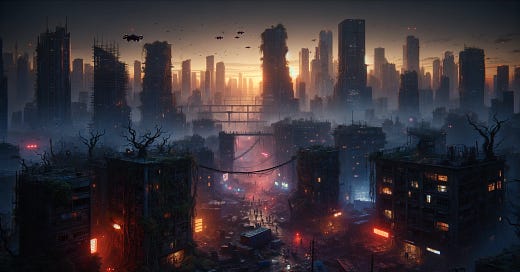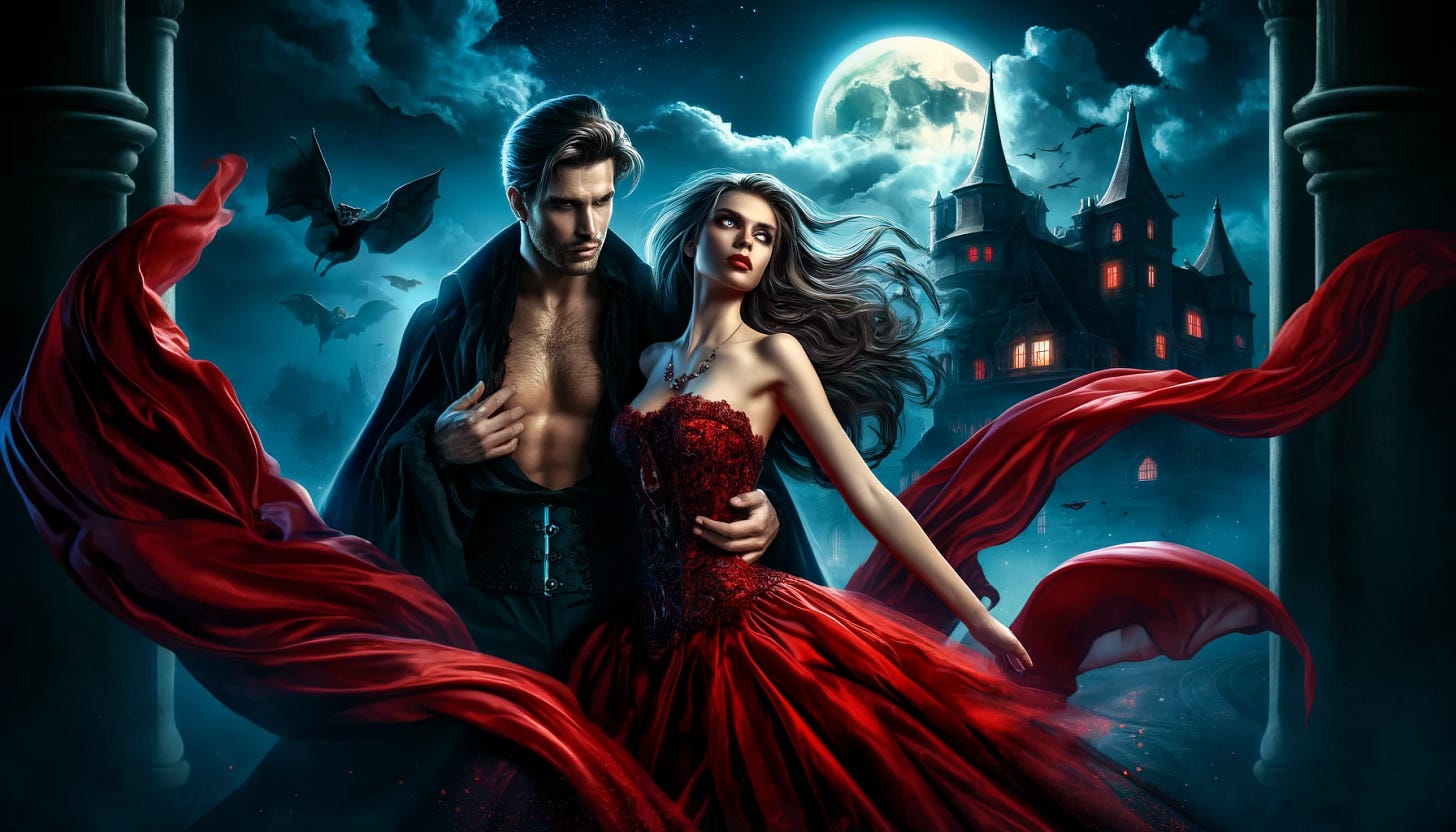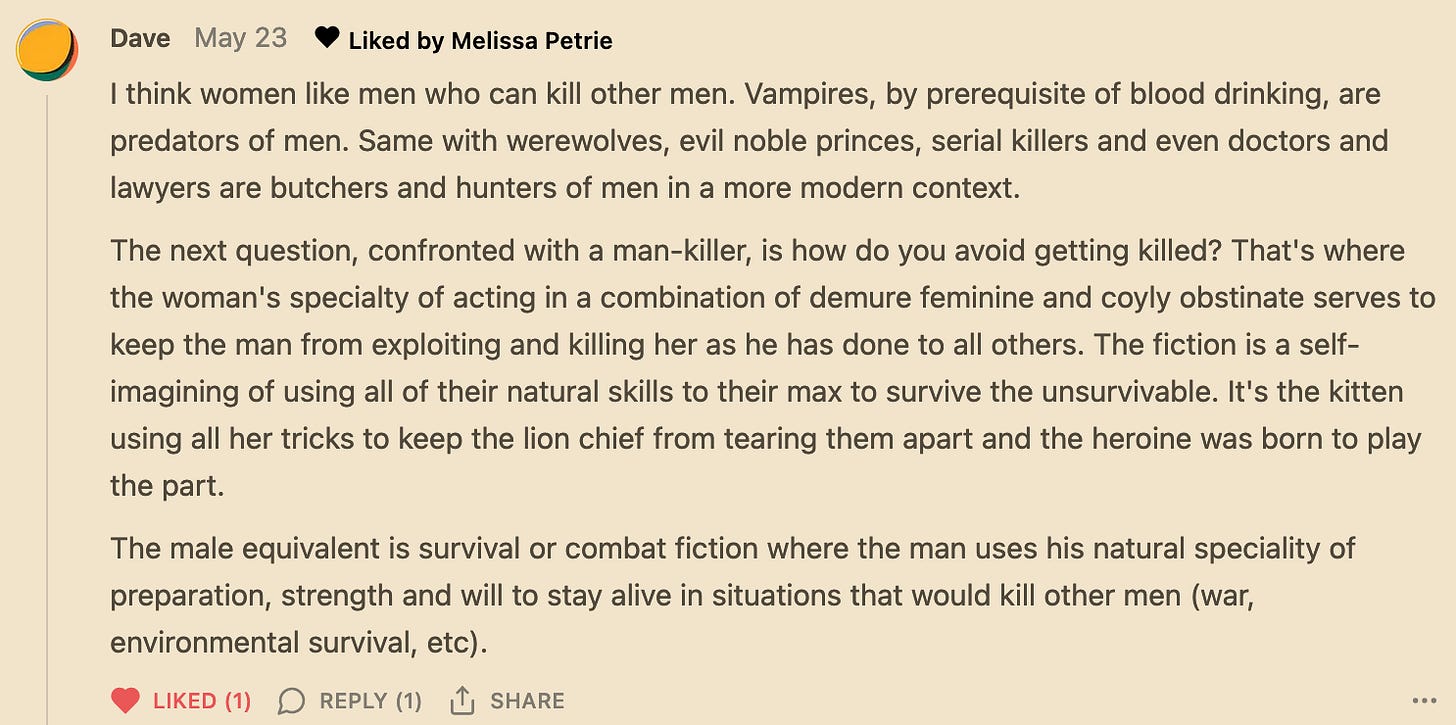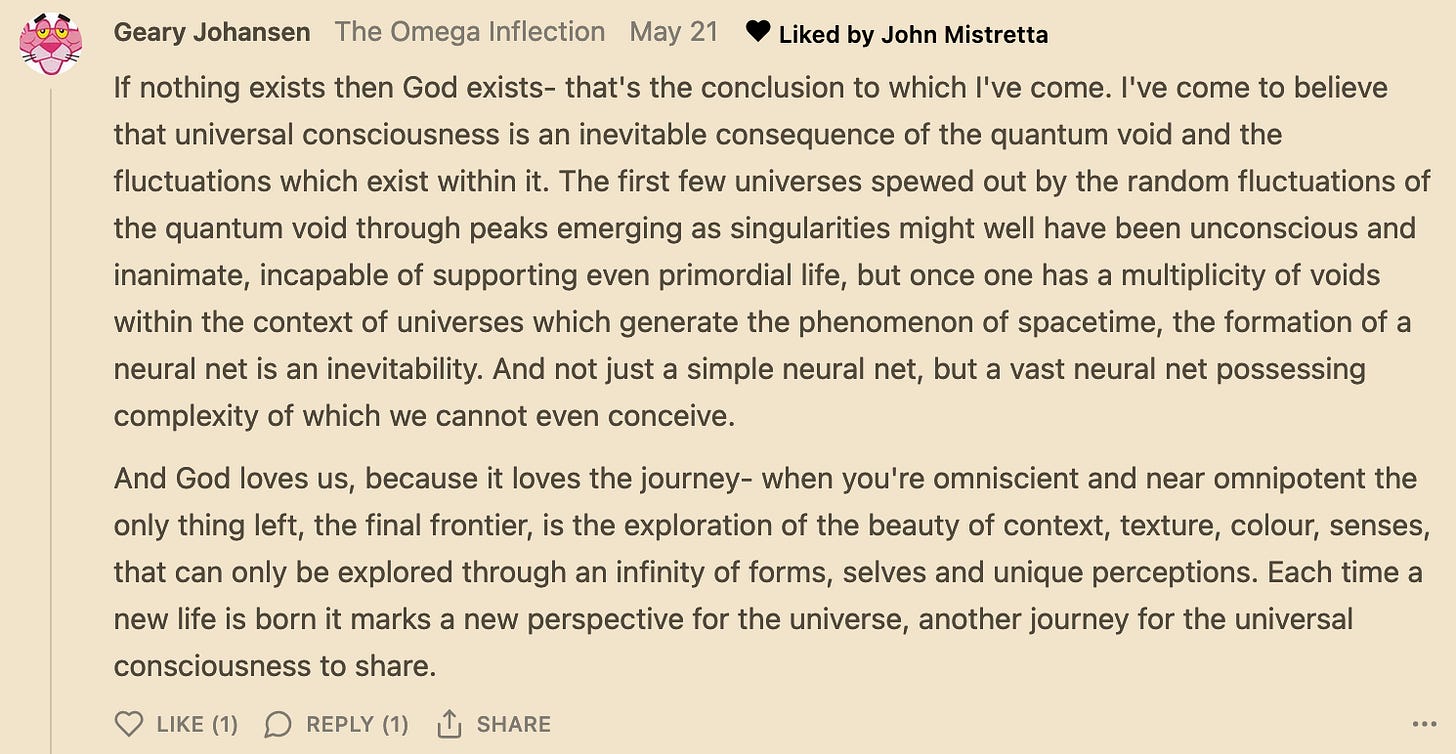Community Comments: Which Dystopia Do We Live In?
& what are we going to do about it?
This week, I wrote a post discussing the differences between George Orwell’s Nineteen Eighty-Four and Aldous Huxley’s Brave New World.
The post addressed a common tendency to pit these novels against one another (i.e. deciding which author got it ‘right’), when in reality, the world we live in has qualities of both novels.
Most readers agreed that the world we live in contains elements of both. Take these comments from
, , , , and , which all maintain that our world contains elements of both, with different ideas as to what exactly this means:As always, you guys came up with some insights that I would never have imagined on my own. For example,
made a great point about another element of our dystopia: the celebration of mediocrity.I think he’s spot-on—our current society is built upon self-indulgence and the illusion of ‘equality’ just as much as pleasure and fear.
It made me wonder why Atlas Shrugged isn’t mentioned in these conversations more (perhaps because it hits a little too close to home).
made a great point. For most of us (at least, those of us on this corner of Substack), the fact that the world we live in has these ‘dystopian’ elements is not exactly news. The question then is what we are supposed to do about it.He’s totally right. And as
points out, constantly harping on the negatives in life is a trap that’s designed to keep us unhappy.Well, I don’t really have the answer. The one I lean towards is that we can’t really do a thing, but that seems like too much of a cop-out to even say.
Perhaps focusing on anything but our problems is an act of rebellion in itself.
This week on Thinking Man presented an unlikely juxtaposition, with one post focusing on the horrors of our world, and the other focusing on the pleasures that come with not taking it too seriously.
I wrote about my habit of sneak-reading romance novels, and confessed my love of vampire fiction. I had a blast writing it. Read the piece here:
In this one, I posed the question of why vampire fiction is so attractive to some people, and I got some interesting answers.
For one, it was nice to just sit back and geek out about guilty pleasure fiction (thanks,
).You guys also had a lot of interesting thoughts about what makes vampires such an attractive subject for so many people.
Consider this comment from
This one from
:And this one from
, which kind of expands upon ’s point:These all shared a common thread in that they referred to something inborn—some deeply-embedded trait within our psyche that makes us respond to this type of fiction.
There’s also certainly a level of wish-fulfillment involved within it, as
and point out:Vampires are everything we’re not. Hot. Rich. Immortal. There’s something in the human brain’s wiring that finds this concept irresistible.
Perhaps this is a stretch—after all, I am trying to tie all these comments together into one cohesive post—but couldn’t it be argued that vampire fiction is the perfect antidote to the dread of living in a dystopian world?
Eh, something about it still doesn’t seem quite right. Are our choices really between dwelling on the horrors of our reality or retreating into cheap escapism?
Don’t get me wrong—I’m an advocate for a little escapism every once in a while. But if you fall back on this option too much, it just leaves you empty.
Perhaps curiosity is the way out of this existential mess—specifically, curiosity about whether there is more to the world than what meets the eye.
addressed this in response to the Huxley vs. Orwell essay, pointing out that Huxley was passionate about psychedelics, believing them to be a gateway to spiritual knowledge.I’m glad she pointed it out, because while Huxley is perhaps best known nowadays because of Brave New World, much of his life’s work was dedicated to expanding consciousness, and continuing the search for truth about the world we live in and everything beyond it.
It just so happens that John also addressed some of these metaphysical questions this week. He wrote a fantastic post on the author Philip K. Dick, and the mind-blowing spiritual knowledge contained in his works:
The comments on this one were interesting, as they provided hypotheses about the nature of the world we live in, and the nature of our place within it.
and got philosophical. added something very interesting.This one requires some context—he’s talking about the book Valis, and ‘Horselover,’ believe it or not, is the main character (a representation of Dick himself).
Really fascinating stuff—and it’s cool that we ended up on The Man in the High Castle, because this book is also a dystopia.
So maybe we have an underdog victor here for ‘best dystopian author’: Philip K. Dick. He’s certainly written more of them than anyone else. I’ve read Ubik and The Simulacrum, and now that I think about it, both made some pretty spot-on points about the world we live in. I wonder why he’s never mentioned in the same conversation as these other classics.
Perhaps I’ll write a piece about Philip K. Dick’s political (and metaphysical) philosophy after John and I read The Man in the High Castle (which, thanks to
, we will probably do soon).Thank you to everyone who joined our discussions this week, whether you were mentioned in this post or not. We read all of your comments and are grateful for every single one of you.
Thanks for reading. If you enjoy these posts and would like to support our work, consider becoming a free or paid subscriber.




















This was a great one, Melissa. Thank you for including my post which included awesome comments from the community! I think we need to make “The Man in the High Castle” our next book club pick.
Seeing all the comments on this subject compiled into one essay gives the reader many different perspectives about this intriguing subject! It’s an amazing communityMelissa, thank you! 🤗✨💜